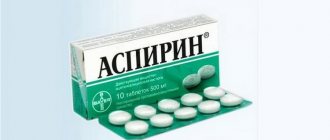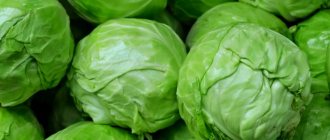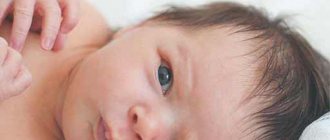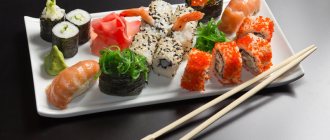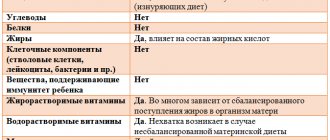It is known that alcohol is contraindicated during breastfeeding. Such drinks negatively affect the development and well-being of the baby and negatively affect the functioning of digestion and nerve cells. But on holiday I want to drink a glass of champagne. Subject to certain rules, a nursing mother is sometimes allowed to drink a little alcohol. In the article we will find out when and in what quantity you can drink champagne while breastfeeding.
Is it possible to drink champagne while breastfeeding?
Alcohol immediately passes into breast milk through the blood. As a percentage, 10th of what was drunk is consumed. The child will receive the maximum dose if fed 15 minutes after drinking champagne. Other alcohol reaches its maximum concentration after an average of 45 minutes.
The procedure for cleansing the body of the standard occurs differently for each person. With a small mother’s weight, 60-65 kilograms, this will happen in 3 hours. If we talk about stronger drinks, they are eliminated from the body much longer. Minimum 12-14 hours.
We can conclude that a nursing mother can afford a glass of sparkling wine, provided that the baby’s next feeding occurs no earlier than 3 hours later and the dose of the drink does not exceed 100 grams.
Impact on mom
No expert would recommend drinking champagne to a nursing mother, even in small dosages. This is due to the fact that “measure” is a flexible concept. In addition, it is difficult to judge the quality of the drink, even when buying alcohol in a company store. Let's determine the main effect of champagne on a woman with breastfeeding:
- The onset of euphoria and relaxation.
- A quick change of mood after the effect of the drink wears off.
- Irritability appears and the desire to drink more.
- Metabolism is disrupted.
- Pulse and heart rate increase.
- There is a lack of oxygen.
- Alcohol impairs lactation.
If the use of champagne becomes part of the system, it will negatively affect not only the baby, but also the health of the mother. Internal organs suffer, and the woman’s psychological state is disrupted.
Impact on the child
When breastfeeding a baby, champagne has an increased effect on the following factors:
- Negatively affects brain activity and psychological state.
- It affects the heart.
- Causes sleep disturbance.
- Provokes weakness and drowsiness.
- Increases colic in the intestines.
- Provokes inflammation of internal organs.
- Makes breathing difficult.
- There is a delay in the growth and overall development of the child.
- Affects the cardiovascular system.
- Promotes stomach upset.
- Provokes allergic reactions.
Even if the standard is completely removed from the mother’s body, consumption may change the taste of milk, and the child will refuse milk.
Danger to child
Regular consumption of any sparkling wine will affect a child of any age; with milk, he will receive a powerful dose of ethanol every day. This will cause addiction in the child, complete disruption of the gastrointestinal tract, problems with breathing and heart.
However, infants under six months of age are at highest risk. Their small, weak liver is unable to cope with even the smallest amount of alcohol. Elimination from the body will take many times longer than in an adult.
Some women begin to regularly drink alcoholic beverages, including champagne, to relieve fatigue and stress. They consider such leisure activities as a way to get rid of postpartum depression. However, in the end, alcohol will not only further aggravate the depressed state, but will also lead to serious health problems.
Before you start drinking sparkling wine, a woman should be aware of all the possible negative consequences for her baby, including:
- deterioration of the cardiovascular system;
- nervous system disorders, insomnia, anxiety and tearfulness;
- slowdown in psycho-speech development;
- apathy and absent-mindedness;
- failure of breathing rhythm;
- gastrointestinal disorders, inflammation of the stomach and intestines, the appearance of colic and bloating;
- the possibility of various allergic reactions;
- decreased blood pressure;
- the emergence of addiction and the development of dependence on alcohol;
- decreased appetite and weight loss;
Also, a nursing woman should take into account that alcohol changes the taste of milk, and the baby may completely refuse it. And regular feeding of milk mixed with ethanol ultimately leads to a slowdown in the overall mental and physical development of the baby, as a result of which he may then lag behind his peers.
Important! Champagne, especially its sweet and semi-sweet varieties, is harmful not only because of its alcohol content, but also because of its sugar and chemical additives. Various chemical ingredients can cause serious food allergies in your baby and are bad for the immature liver.
Pediatricians' opinions
Experts can allow champagne in small doses only 6 months after the birth of the child, provided that the baby is healthy and developing normally. It is recommended to express milk before drinking alcohol, and thus prevent the standard from getting into the milk.
This drink is absorbed within half an hour. Due to the fact that it is effervescent, intoxication occurs quickly. With small doses, the baby will not be harmed 2-3 hours after taking champagne. Therefore, feeding is allowed after 3 hours, not earlier. But this is only an approximate calculation, because the elimination of alcohol depends on the weight, height of the woman and the strength of the drink.
Under no circumstances drink alcohol on an empty stomach and do not exceed a dose of 50 ml for the first dose. Further, you are allowed to drink up to 150 ml, no more than once every 10 days, provided that the drink is of good quality.
Opinions from forums
Natalya: In defense of alcohol - without it, of course, no one will die. But pregnancy and feeding imply an almost complete renunciation of pleasure, and if at least sometimes you don’t allow yourself a little something, you can develop a good neurosis, which will also affect the child (or even hidden aggression towards him as the cause of all misfortunes). For myself, I decide in favor of champagne (but I have an older child and eats complementary foods, i.e. there will be 5-6 hours between alcohol and feeding).
Victoria Bystrova, 1st child: Some old, venerable pediatrician told me: “Yes, eat, whatever you want, you will still get milk, and not something else.” And my husband’s grandmother from the Novgorod region shares the same opinion, and she raised 7 healthy children. And you know, when I started eating everything I wanted, the child’s allergies (on breastfeeding) immediately disappeared. I don’t think that one glass will get much for the baby. On the 1st New Year, mine was 5 months old, I drank champagne and nothing... If you really want it, why not drink it. If you are afraid that your conscience will torture you, then it’s better not to, it will cost you more. Maybe I'm wrong, but in such quantities, it's more of a psychological issue than a health issue.
Svetlana: I’ll tell you a VERY seditious thought: I would drink a couple of glasses of champagne without bothering at all. And without even expressing anything. This will not affect anything once. I had a situation when I was feeding: the milk suddenly ran out, it was like it was cut off. Empty, that's all. And we were seen by a very good (and very paid) pediatrician. He categorically forbade me to feed the child with formula, but ordered: let the hungry one hang on her chest, suck it, they say, nothing terrible will happen to her in a day. And he prescribed me a diet: a lot of boiled meat and beer (!). Well, I drank a bottle then :). With hindsight, of course, with surprise. The next day after such a diet, there was a lot of milk (there were even problems - that it hardened the breasts, but, ttt, they softened it). The child slept exceptionally well - well, of course, she had been crying a lot before she was hungry, but now she was full, and even with beer, as it were.

